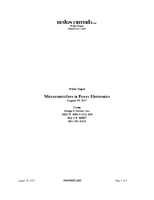Investigation details hydrogen storage system releases.
Share:
Press Release Summary:
According to William Winters, Sandia National Laboratory, a need exists for developing codes and standards to support the wide-spread delivery of liquid hydrogen bulk fuel and fueling station storage. To develop these codes and standards, the consequences of planned and unplanned hydrogen releases must be understood. Systems under consideration are those used to supply hydrogen for transportation, such as production storage tanks, tanker trucks, and tanks at vehicle fueling stations.
Original Press Release:
Results from an Analytical Investigation of Small-Scale Releases from Liquid Hydrogen Storage Systems
William Winters, Sandia National Laboratory
A need exists for developing codes and standards to support the wide-spread delivery of liquid hydrogen bulk fuel and fueling station storage. To develop these codes and standards the consequences of planned and unplanned hydrogen releases must be understood. The systems under consideration are mainly those used in supplying hydrogen for transportation. These systems include production storage tanks, tanker trucks and tanks located at vehicle fueling stations. Typically these systems store hydrogen in the saturated state at approximately 11 atmospheres. Storage vessels are heavily insulated and sometimes actively cooled to minimize the rate of hydrogen boil-off (intended hydrogen release).




